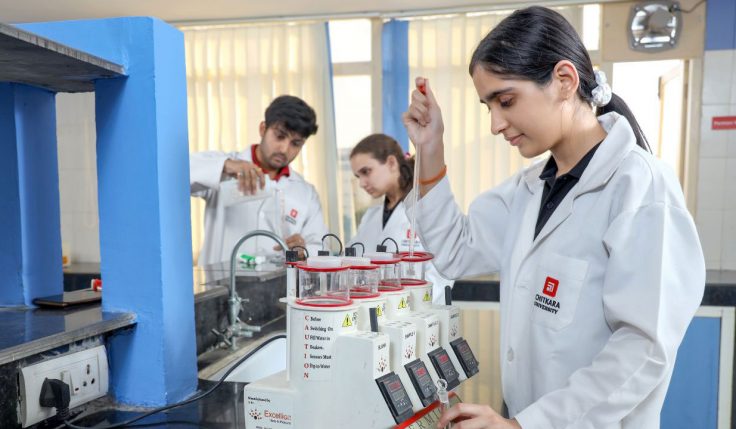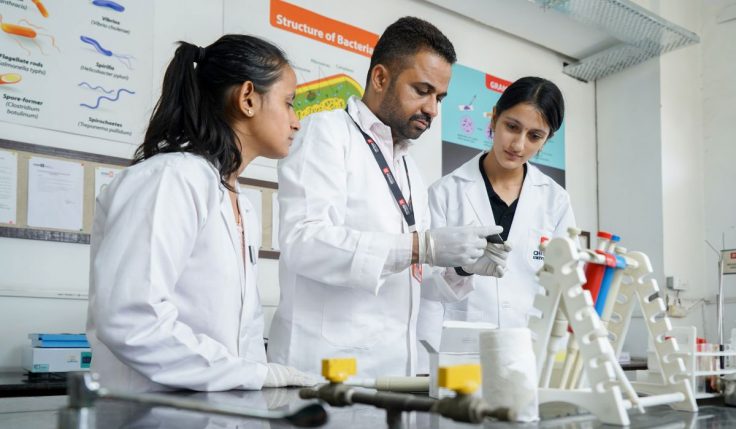The subject of pharmaceutical sciences is essential in a society where healthcare innovations are continuously sought after and changing. Pharmaceutical scientists are at the forefront of enhancing public health, from drug research and discovery to guaranteeing the safety and effectiveness of pharmaceuticals. Although obtaining a Ph.D. in pharmaceutical sciences requires a major commitment, there are several advantages that can result in a successful and influential career. The following are the main advantages of earning a Ph.D. in pharmaceutical sciences.
Better Knowledge and Skill
A doctorate in pharmaceutical sciences exposes the individual to a wide range of knowledge in medicinal chemistry, pharmacology, pharmaceutics, and pharmacokinetics, among others. With this type of higher education, you are armed with knowledge that can be brought to bear on even the most complex problems in therapeutic innovation and the development of medications. Your sterling academic background ensures that you have a deep understanding of theoretical concepts and practical applications, and therefore you will be an asset in scientific research and development.
Research Possibilities
A major component of Ph.D. programs is research, which offers students the opportunity to work on innovative projects. You can pursue your interests and help further scientific knowledge, maybe even discover new medications or techniques to heal people. You can do your research with renowned scholars and work in well-appointed laboratories that provide all the facilities necessary for producing high-quality work. Help develop your research skills and become an expert in your field by publishing your research work in good journals.
Professional Advancement
A Ph.D. opens chances to higher-level job opportunities that a lesser degree very often will not give access to. You can be a clinical researcher, pharmaceutical scientist, research scientist, or even a university professor. Because of the amount of experience and research a Ph.D. symbolizes, it is very frequently needed or preferred for leadership in such positions at an academic, business, or governmental level.
Contribution to Public Health
Pharmaceutical professionals develop new drugs and treatment methods that will definitely play a big role in the development of the health of people. When you earn your Ph.D., you can be working with diseases for which no effective cure exists yet, and you could provide an important contribution to society. All your effort might lead to improved health and increased life expectancy, even leading to medicines that could save people’s lives around the world.
High Earning Potential
Those who possess a Ph.D. generally have increased earning potential compared to someone holding a bachelor’s or master’s degree. Your doctoral studies give you high skills and specific knowledge which become highly sought after in the labor market. Pharmaceutical corporations, research centers, and academic institutions are prepared to pay high remuneration for your time, experience, and knowledge.
Mentoring and Teaching Opportunities
A Ph.D. in pharmaceutical sciences will enable a person to teach, mentor, and guide the next generation of scientists. Be a faculty member at some college or university, guiding students in their academic and research pursuits by sharing one’s skills and experience. This position offers you professional and intellectual development, which influences the field’s outlook directly.
State-of-the-Art Technology
Virtually all Ph.D. programs provide students with access to state-of-the-art equipment and resources to conduct research at the cutting edge. This exposes one to state-of-the-art instrumentation and methodologies that aid in keeping up-to-date with new developments in pharmaceutical sciences and thereby serves in the improvement of technical abilities. Such experiences are extremely useful in career movement into industry or academia, since this type of knowledge is highly valued.
Networking Opportunities
During your Ph.D., there will be the opportunity for you to interact and collaborate with other researchers, participate in conferences, and network with people involved in the pharmaceutical area. This kind of networking may end up as really highly paid joint ventures, job offers, and a strong overview of the world landscape in pharmaceutical sciences. This is central to building a good professional networking that lets one leap forward in career matters and stay updated on events that take place in the business.
Intellectual Development and Personal Satisfaction
The academically exciting and demanding Ph.D. certainly requires commitment, tenacity, and a love of learning. Doing study, facing the problems and overcoming them, and making scientific breakthroughs give a great sense of satisfaction and success to a person. Only the intellectual development you receive, unmatched in any other course of study, while pursuing your doctorate can fuel an enthusiasm for creativity and lifelong study.
Recognition and Impact Worldwide
A Ph.D. in pharmaceutical science gives one power to influence the world with one’s research and contributions to the creation of medication. Your work can influence health policy, improve approaches to therapy, and engage the most pressing current health issues. Such recognition may also result in invitations for speaking at conferences abroad and requests to become a member of the advisory boards and service to the international scientific community.
In summary
The pursuit of a Ph.D. in pharmaceutical sciences is a rewarding journey from research to new knowledge to be gained, advancing in professional and personal development. It offers you the learning and skills needed to innovate, advance public health, and shape the outcomes of your career. If one has a real interest in pharmaceutical sciences and a burning desire to make a difference in the world, getting a Ph.D. could unlock many opportunities and success into your future.
Get a Ph.D. in Pharmaceutical Sciences today and be at the forefront of reforming health care and shaping the lives of the people around you.
The Ph.D. program in Pharmaceutical Sciences offered by Chitkara University aims to equip individuals with advanced proficiency in the themes of medication transport, disposal, and absorption. This four-year course is designed based on a rigorous curriculum with foundation coursework followed by research training to equip students with theoretical knowledge and practical skills for working in the pharmaceutical industry. Through an education that values collaborative learning, students come into contact with peers and mentors from all walks of fields, enhancing their critical thinking and intellectual curiosity.
Another key strength of this Ph.D. program is its focus on the practical application of studies and research opportunities. Students can work on innovative research projects since they are provided with state-of-the-art facilities and access to cutting-edge technology. This practical approach is further enhanced by the dedication of the program to the incorporation of research and problem-solving methods into the curriculum so that students get a chance to discover and develop new drugs. Students taking course works specialized in clinical evaluations, nanotechnology, and synthetic and natural drug discovery get prepared towards solving the modern problems of pharmaceutical sciences.
From its broad curriculum, it covers a wide span of medicinal chemistry disciplines, pharmaceutics, pharmacology, clinical and experimental therapies, and pharmacognosy. With such an offering, therefore, a graduate shall be well equipped to meet varied professional opportunities in academia, business, and public sector careers. The curriculum, therefore, places a strong focus on networking and professional development. There are plenty of opportunities for students to network with industry veterans and present their work at leading conferences.
Also, read this blog post: Which One is Better? Ph.D in Medicinal Chemistry vs. Pharmaceutics
The program is only open to those who have done relevant master’s or bachelor’s degrees and have acquired specific academic and professional skills. The application process has an initial comprehensive application process, which will be followed by screening, a written examination, and a personal interview. That is the reason Chitkara University offers to its Ph.D. students intensive supervision and a collaborative research environment that would enable them to publish their work and reach major academic and professional milestones. At the end of the program, the successful students will exit with advanced knowledge and abilities, a huge professional network, and deep awareness of the latest developments in pharmaceutical sciences.






